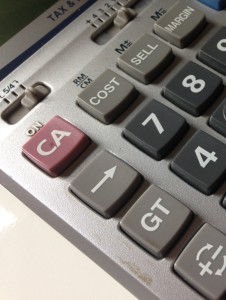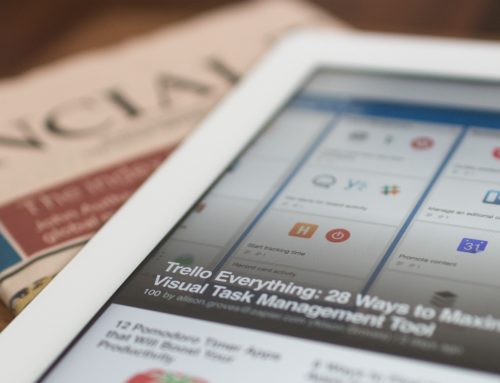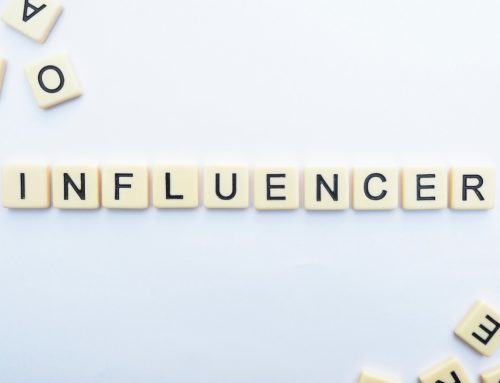 The “three words” still rule
The “three words” still rule
In my last post, I talked about how, instead of setting New Year’s Resolutions, I was instead going to put Chris Brogan’s “three words” exercise into practice.
And I did, sharing why I chose them and what they mean for me as I get ready for the new year (as a reminder, they are Shed, Ground, Own).
Several of you shared your own three words with me as well. It was so cool that you did the exercise too!
My three words are still my roadmap for 2020. But if, as a Social PR pro, you are looking for something a bit more tangible to help you hit the ground running, here are my suggestions for three resolutions that are broad enough not to be scary, yet specific enough that you will – ok, might ;) – actually implement them.
New Year’s Resolutions for the Social PR Pro
1. Make friends with numbers.
Like many of my colleagues, I’ve worked in the greater PR & marketing industry for quite a while now. It’s been fascinating to watch the industry change thanks to the explosion of technology. In fact, the very idea of “Social PR” would not be possible without the social technologies that allow us to build and maintain communities of influence.
However, while PR pros in general have adopted social technologies quite enthusiastically, there’s still a fair amount of hesitation when it comes to opening their arms to numbers in general and, therefore, measurement. I still hear that old chestnut, that PR is about “storytelling,” and that they “didn’t go to journalism school to do math.”
Yes, it is, and perhaps they didn’t.
But here’s a news flash: stories that are memorable, that captivate, and that move you to action (which is ultimately what we want to see happen for our organizations and clients, right?), have numbers woven throughout them.
Numbers give stories context. Without numerical contexts, stories are simply a jumble of facts and fiction, with no way of separating one from the other (and the only way to separate them? Yes, numbers).
Think about all the times you’ve had to create backgrounders, or find newsworthy “hooks.” Could you have done any of these without numbers?
- when something began
- how long it took to get traction
- how far X dollars go (e.g. for non-profits)
- why lifesaving drug A is more effective than lifesaving drug B (works more quickly, is more efficient, saves more lives, costs less money)
How to get started:
- Get familiar with some basic math terminology (it really is fun!)
- Get familiar with Excel. This is a really neat site with excellent tutorials. I’m telling you, you’ll start feeling like a genius almost instantly!
2. Quantify your goals.
If you’ve been in strategy mode the last several weeks, then chances are you’ve already come up with goals for your organization (or client).
That’s awesome!
As you move ahead, make sure that your goals are, to the best of your ability, quantifiable.
See, there’s that numbers thing again ;).
 I’ve said this before, and I’ll say it again: it’s all very well to want to be the biggest, most popular, top-selling, etc. etc. etc.
I’ve said this before, and I’ll say it again: it’s all very well to want to be the biggest, most popular, top-selling, etc. etc. etc.
But what is the context for those superlatives? Do you need to be the biggest ___ in a specific geographic area? In a certain market? Within what time range?
If you don’t define these other factors at the outset, then you’ll have no way of knowing, once your campaign draws to a close, whether or not you succeeded.
Bake quantifiability into everything you do.
And if something doesn’t lend itself to being quantifiable right off the bat, then track the most important indicators you have at hand until you have some kind of baseline… and then come up with your quantifiable goals.
How to get started:
I wrote a post on how to get started with your measurement program quite a while back. It’s still a good one. While it talks about your measurement strategy overall, you can still use it to help develop your quantifiable goals, which is the point of this exercise.
3. Prioritize self care.
This might seem a little odd, even New Agey, when I’ve been talking about numbers and quantifiable goals and measurement, oh my!
But particularly when you are trying to develop new habits (or improve old ones), you are likely to expend a lot of energy towards that end. And this is tiring.
Your brain is used to functioning a certain way; now, all of a sudden, you’re asking it to do things it is quite capable of, it just isn’t used to doing them.
So it gets tired. And when we get tired, we’re apt to take shortcuts, to “make do,” and to half-ass when we know we could otherwise excel.
Having gone back to school part-time recently myself, I know this first-hand.
So while you are working hard on growing your new skills, don’t forget to take care of yourself.
Self care includes, but isn’t limited to the following, so here’s how to get started:
- doing nice things for yourself (mani-pedi, massage, etc.)
- asking others for help (split the household chores! support your neighbor’s kid’s teen enterprise by hiring her/him as a petsitter)
- taking time out for yourself, even if that means reading a book you wouldn’t otherwise pick up
- physical activity that helps keeps you strong
- meditation (last but definitely not the least)
So there you have it. Three New Year’s resolutions to help you start 2020 off on a really strong Social PR note. I hope they’re helpful and, if you use any of them, please do let me know how you get along!
And seeing as how the next time I talk to you it will be 2020… Happy New Year!

![[EVENT]: PR Hacks for Small Biz (online)](https://shonaliburke.com/wp-content/uploads/2021/06/FB-Ad-1200x800-01-01-01-Copy-500x383.jpeg)







Leave A Comment